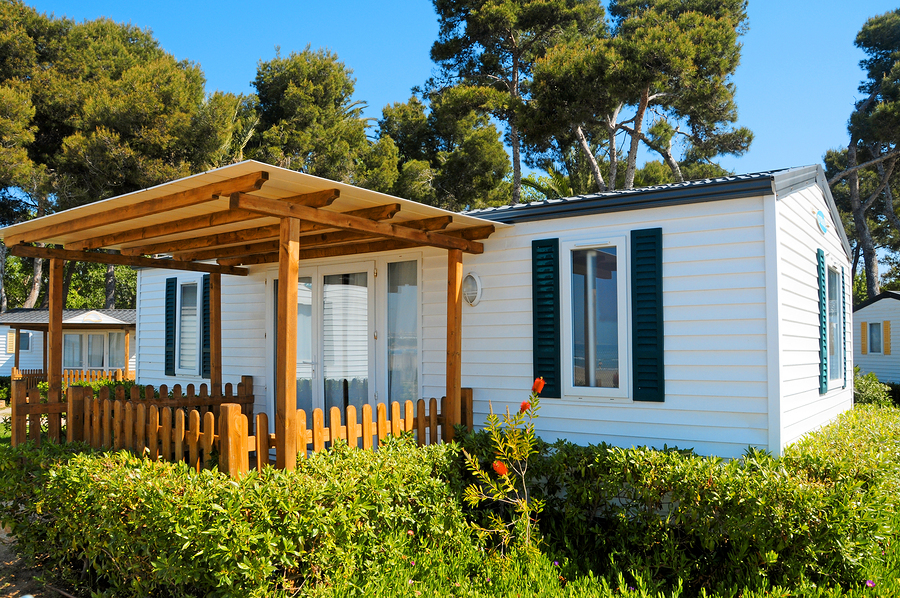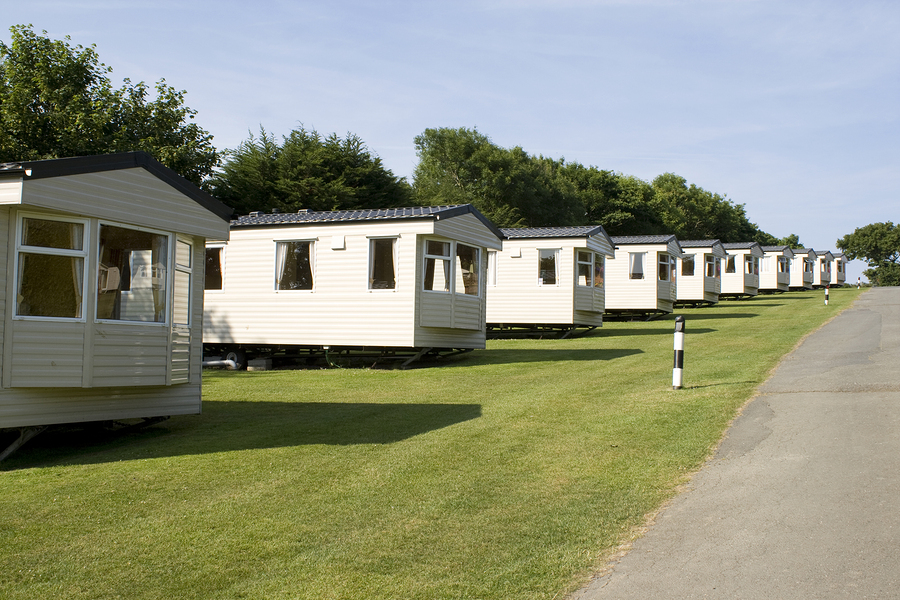 Freddie Mac and Fannie Mae have a duty to serve low-income borrowers and supporting a manufactured home purchase can be a path to fulfill this duty.
Freddie Mac and Fannie Mae have a duty to serve low-income borrowers and supporting a manufactured home purchase can be a path to fulfill this duty.
Housing access and affordability has been an issue in the US, particularly since the financial crisis of 2008.
Yet while conventional homes may be out of reach for many Americans, there's one segment of the market that isn't necessarily: manufactured homes.
The average price of
new manufactured homes is $64,000, as compared to a much steeper average price of
$365,700 for new site-built homes.
Although the former type of real estate may be a much more affordable option for low-income families, a mortgage is still typically needed to finance of purchases. Yet low-income borrowers still have troubles accessing loans to have their piece of the real estate pie, largely because government-sponsored entities like Freddie Mac and Fannie Mae don't usually deal with loans whereby the building isn't legally tied to the land it sits on.
Even though manufactured homes are a much more cost-effective alternative for low-income borrowers, the volume for loans under $75,000
dropped by 5 percent in 2014, despite the real estate market as a whole improving since 2008.
As a result, manufactured homebuyers are forced to tap into a market that doesn't depend on the government secondary market to get the money needed to fund the loan.
But changes are emerging. Recently, the Federal Housing Finance Agency's (FHFA) "
Duty to Serve" rule (DTS) on Fannie Mae and Freddie Mac would put underserved and underbanked borrowers in a better position to access the loans needed to make a home purchase. The goal is to make it easier for families to access mortgage credit for a home they can afford.
By stepping up their game to help low-income borrowers access financing for manufactured home purchases, Fannie Mae and Freddie Mac would receive "duty-to-serve" credits. Essentially, this recent proposal would help induce states to recognize manufactured homes as legitimate housing, despite the separation of the building from the land.
The new DTS rule would require a firm commitment from Fannie and Freddie to buy "
chattel loans" - financing for homes not legally bound to the land that's largely used to finance manufactured homes - and do so in a profitable and secure manner.
 Chattel loans provide an affordable option for those who can't afford a conventional site-built home.
Chattel loans provide an affordable option for those who can't afford a conventional site-built home.
The proposal would also put Fannie and Freddie in a position to be obligated to acquire loans that finance entire communities of manufactured homes.
The reasons why Freddie and Fannie haven't dabbled in chattel loans thus far are clear: manufactured home financing doesn't have the same level of federal support as that of site-built homes. Federal Housing Administration insurance for chattel lending is rather low, and the lack of an efficient securitization market means there's no avenue to promote access to mortgage credit for chattel lending. As such, the financing for manufactured housing can't compete with site-built housing.
But the new proposal managed by the FHFA is said to change all that. Yet how successful this plan will be in developing a secondary loan market for manufactured homes will largely depend on how many states actually chisel away at the current business model in regards to the manufactured housing market. A
strong secondary market for chattel loans is essential to promote easy access to affordable homeownership.
Chattel loans quite simply offer a viable and affordable alternative to buyers who may have limited options in the real estate market and want to purchase a low-priced manufactured home.
Garnet Capital - Helping Banks Safely Add Manufactured Home Loans to Loan Portfolios
If done responsibly, banks can - and should - offer more affordable financing options to those who otherwise cannot afford a conventional site-built home with a traditional home loan. With an
estimated 18 million Americans living in manufactured homes, there's clearly a market for such loan products. And with these new proposals mandated by Congress, banks and lenders may have more options to offset the inherent risks associated with such loans.
Garnet Capital can be a key player for banks and lenders who wish to tap into manufactured home loans to add to their loan portfolios. With our in-depth experience in the banking industry, we're very familiar with all types of loan products, including chattel loans.
We are familiar with this area of lending, and can show banks and lenders a number of portfolios that can meet investment and CRA needs.
Register for our online portfolio auction system to discover more about the various loan products you can profitably add to your loan portfolio.






